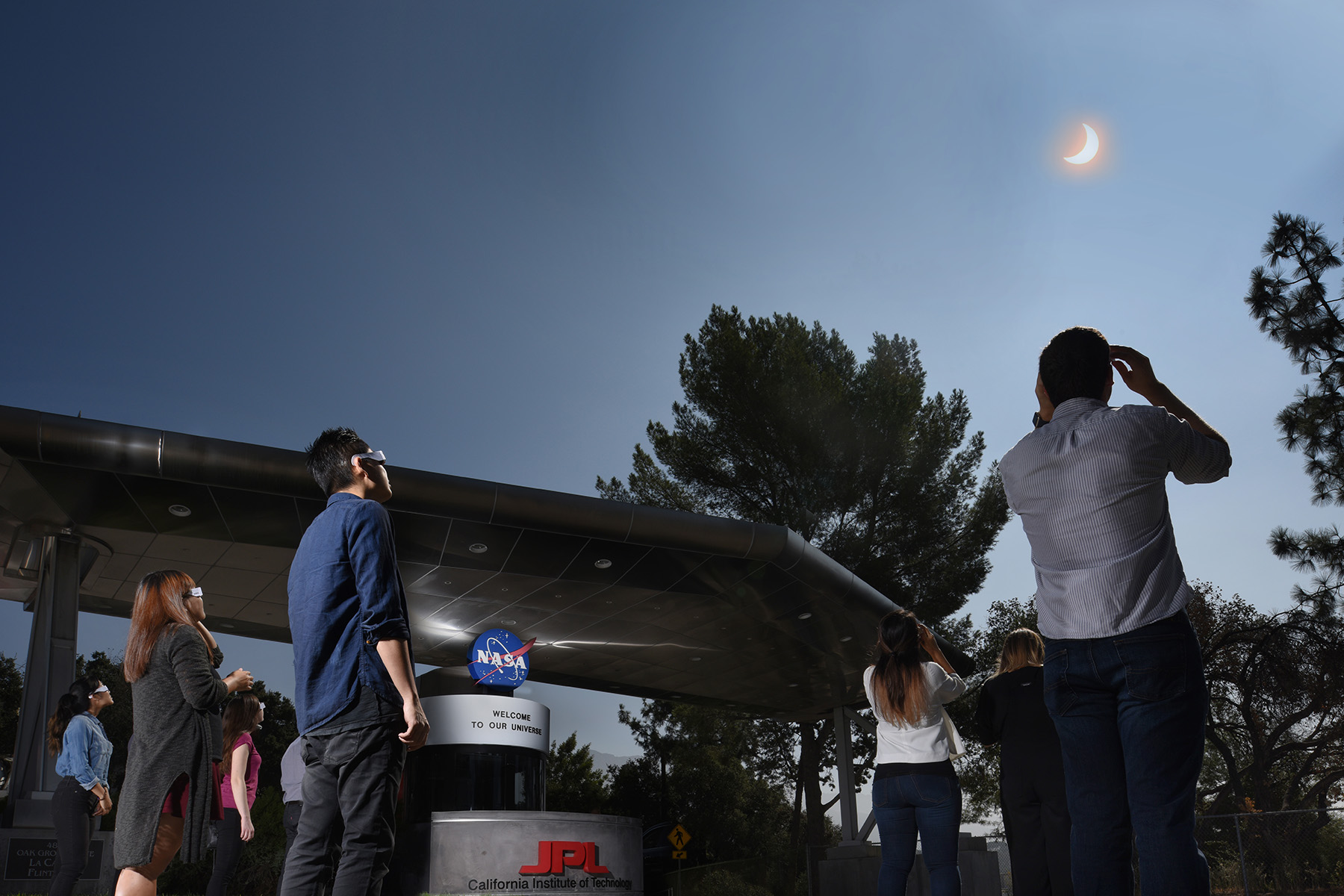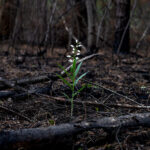One of nature’s premier events that many have eagerly anticipated is now weeks away. The April 8, 2024, solar eclipse will cross much of the middle section of the United States – from Mexico to Canada. Calculations made many years ago have heightened expectations and planning efforts among professional and amateur astronomers, educators, eclipse chasers, science writers, other outreach specialists, and the general public. However, as mentioned in a September 2023 article, some of these special event planners “may not have considered including the community’s emergency preparedness and response capabilities or their operational knowledge during planning discussions.”
An April 2023 Domestic Preparedness Journal eclipse article focused on the planning and preparations underway in many cities, towns, counties, and states that are located under or near the eclipse’s known path. In the weeks between now and the eclipse, attention must turn to the event’s operations. As such, it is important for professionals who regularly prepare for planned special events – emergencies and incidents that could simultaneously occur – to be involved in eclipse planning.
With so many different groups involved – some with little or no operational experience – the preparedness community has valuable knowledge to share. For example, as frequent users of tabletop and field exercises, these professionals can share guidance with others involved in planning local or state eclipse efforts to make that extended weekend, April 5-9, far more manageable. With a short timeframe, it may be difficult to organize tabletop exercises. However, a facilitated session that walks the event’s planning committee and key volunteers through the day’s schedule is another option. Since some special event planning groups may not be familiar with operational exercises, emergency management and public safety professionals can reach out to these groups about the value of identifying and closing gaps to ensure a successful event.
Collaborative Community Preparedness
When preparedness professionals share their knowledge with planning committee members, the benefits extend beyond one planned special event. Events like a solar eclipse allow the responder community to explain emergency support functions and how they are used for special events and disasters. This education helps build and maintain a citizen corps resource for future planned and unplanned events.
Events that span the geographical area of the April 8 eclipse are infrequent. In fact, the relatively short period between the last total solar eclipse in 2017 and the upcoming 2024 total eclipse is a rarity for nationwide events. However, people who managed their 2017 eclipse events may have moved to other positions or retired. As people leave, institutional memory dims. As such, the successes and failures may no longer be readily available. Lack of continuity of operations from event to event may limit the understanding of how best to move from planning to implementation and operations.
In 2020, when the American Astronomical Society established its Solar Eclipse Task Force, it also established several working groups. The Local Planning Working Group, co-chaired by the author and Bob Baer of Southern Illinois University, meets regularly – at first, monthly, and now bimonthly – to share plans and activities. Three of the Local Planning Working Group members shared recent activities that show their pivot from planning to operations.
Indiana and New York Efforts
Barrett Caldwell, professor of Industrial Engineering & Aeronautics and Astronautics at Purdue University, has grounded his engineering students in the practical needs of operations by stressing that they:
[B]e very explicit and specific with all planning interactions and community partner interactions. It’s important for the students to understand that most of our communities have very “diverse levels of understanding” regarding the eclipse details that range from questions about high-quality photography to simple distinctions between the timing and length of totality and the longer period of moon coverage of the sun.
Based on the data Indiana has collected, the state’s eclipse plans have taken the following into account as they move to operations:
- Using information from ticket sales at Indy Motor Speedway that show purchases from 20 to 30 states to help finalize transportation plans;
- Anticipating additional traffic from the Chicagoland area;
- Recognizing the location of the Indianapolis airport in the area of totality; and
- Anticipating traffic surge from Lebanon, Indiana.
As Dr. Caldwell noted, operations for an event of this magnitude require understanding a range of concerns. For example, he stated, “Several of our communities have highlighted the desire for translations of eclipse viewing and other information into Spanish.”
Mitch Lumen, on behalf of the Evansville, Indiana, 2024 Total Eclipse event, added that their shift to operations included contacting the U.S. Coast Guard to coordinate the eclipse response on the Ohio River. They also did more to engage and prepare the business community for the event.
Jim Stack, executive director of the Genesee Transportation Council, noted that Rochester, New York, prepared for its eclipse event by analyzing current traffic patterns (e.g., with loop detectors in roads, transportation management center cameras, toll roads) and anticipating the number of people who may be leaving on Monday or driving at night. These efforts will help to improve traffic flow.
Checklists and Other Resources
Checklists provide a clear picture of action items to complete. Recently collected data can enhance these checklists. Many of the eclipse planning committees include a wide range of partners and knowledge. As such, different groups may have used different checklists to complete their specific planning efforts. A shared, consistent checklist for all to use can help limit confusion. In the shift to operations for the 2024 eclipse event, there are many considerations beyond the availability of special eclipse glasses. For example, it is essential to be aware of how different Tribal nations observe (or do not observe) the eclipse. Communications, emergency management, transportation, and the private sector each have critical roles in ensuring public safety within and between special event gatherings.
A Checklist for Shifting Eclipse Planning to Operations
The Federal Highway Administration’s (FHWA) Office of Operations, U.S. Department of Transportation, has produced publications to help with preparations and day-of-event operations for planned special events:
- FHWA Office of Operations publications list – This link provides a comprehensive list of the office’s publications in program areas that could help planners manage influxes of traffic and incidents that could hinder the flow to and from event locations.
- Planned Special Events Traffic Management – This list of publications focuses on traffic management planning for special events.
- Traffic Incident Management – This publication list provides information for managing traffic when an incident occurs.
- Planned Special Events: Checklists for Practitioners – These six checklists can be downloaded and printed to facilitate initial planning activities, a feasibility study, traffic management, implementation activities, day-of-event activities, and post-event activities.
- Tabletop Exercise Instructions for Planned Events and Unplanned Incidents/Emergencies – This guide can help manage planned special events as well as traffic incidents and emergency responses that may be required during the event.
The following resources are specific to the April 2024 total solar eclipse and provide critical information about what to expect across the United States:
- Weather-Responsive Management Strategies – This factsheet shares strategies for Departments of Transportation to consider for the upcoming solar eclipse.
- NASA’s Eclipses Page – This website provides information about solar eclipses using 3D interactive technology.
The upcoming eclipse is an excellent example of a planned special event that enables event planning committees the time to develop, review, and adjust their plans. Well-thought-out plans lay the groundwork for an organized shift to test those plans and ensure successful implementation and operations on the day of the event. The strength that the preparedness community brings to both phases is their planning knowledge to enable a well-run and safe event. Sharing information with all members of the planning committee throughout the planning and implementation processes will facilitate day-of-event decisions. The preparedness community is familiar with the many partners necessary for this type of planned event and can explain to event planners the intricacies involved with ensuring that attendees arrive and leave safely. By working and communicating with special event planners, emergency management and public safety agencies can promote a safe and successful event.

Laurel J. Radow
Laurel J. Radow is an American Astronomical Society Solar Eclipse Task Force (AAS SETF) member and co-chair of the AAS Local Planning Working Group. She joined the Federal Highway Administration (FHWA), U.S. Department of Transportation in 1996. From 2004 until her retirement at the end of 2016, she served as a member of the FHWA Office of Operation’s Traffic Incident and Events Management Team. In that capacity, she served as program manager for the agency’s Evacuations/Emergencies and Planned Special Events programs and managed a range of Traffic Incident Management tasks. From 2014-2016, she served as vice chair of the National Academy of Sciences Transportation Research Board’s (TRB) Standing Committee on Critical Transportation Infrastructure Protection (AMR10). She recently completed her second and final term as chair of the same committee. In addition to co-chairing the TRB at the October 2018 Resiliency Conference (T-RISE), she also served as guest managing editor for the TR News September/October 2021 Issue no. 335, “State of Emergency: What Transportation Learned from 9/11.”
- Laurel J. Radowhttps://www.domesticpreparedness.com/author/laurel-j-radow
- Laurel J. Radowhttps://www.domesticpreparedness.com/author/laurel-j-radow
- Laurel J. Radowhttps://www.domesticpreparedness.com/author/laurel-j-radow
- Laurel J. Radowhttps://www.domesticpreparedness.com/author/laurel-j-radow






